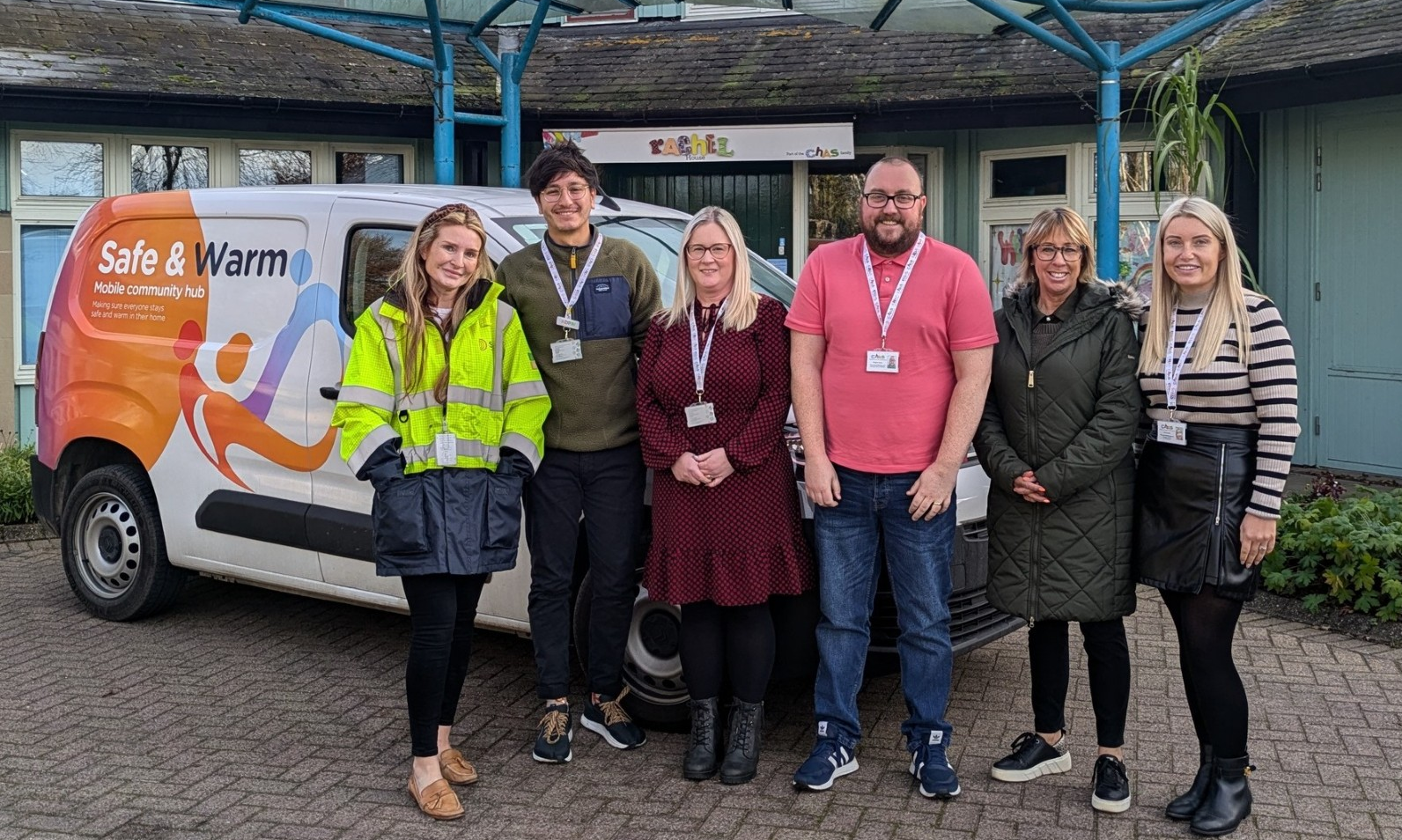CHAS and BGET
Helping families with critically ill children in Scotland to stay safe and warm at home
Our project at a glance
- Priority need group: Critically ill people, families with young children and carers
- Strategic priority area: Supporting priority vulnerability groups to access tailored support services
- Support target: 1,170 households over two years
- Duration: May 2024 to March 2026
- Investment: £163,541 over two years
- Forecast SROI: £0.84
Without the help and support from the financial wellbeing and energy team I would not have been able to move forward with my financial situation and would still be burying my head in the sand trying to pay off my debts. They really helped me get back on my feet and taught me how to budget my money. I have gained vital skills from this team.
CHAS family
Why we’re working together
Many families with critically ill children depend on essential electrical equipment to keep their child safe and well at home. For example, ventilators, hoists and food pumps.
These additional energy costs cannot be avoided, and families are left with spiralling energy costs that they simply must meet. This is not only significantly impacting household incomes, but families of critically ill children across Scotland are experiencing greater levels of stress and financial hardship alongside their caring responsibilities.
As the Scottish charity for children’s palliative care, Children’s Hospices Across Scotland (CHAS) supports families who have a child with a life-limiting condition. During winter 2023, the charity witnessed a dramatic increase in families finding energy bills unaffordable and facing unbearable decisions around the care of their children.
Partnering with British Gas Energy Trust (BGET), we aim to directly support 400 families with a home energy visit, with all families better able to use energy safely, affordably and efficiently after the visit.
Project objectives
- Providing personalised one-on-one energy advice and support at home visits
- Offering direct and practical energy advice to families facing financial pressures
- Arranging free appliance servicing for families unable to afford to service their gas appliances
- Encouraging families to sign up for the Priority Services Register
- Raising awareness of carbon monoxide safety and providing free CO alarms to households most at risk of CO harm

How we’re working together
One-to-one energy advice
The CHAS Financial Wellbeing and Energy Advice Team provides one-to-one support to families in need of help to maintain a safe and warm home.
Over the course of our two-year partnership, the team will visit 400 families in their homes to provide in-depth fuel poverty and energy safeguarding support. The home visits will help lift families out of their immediate energy crisis as well as provide longer-term support to ensure families can maintain a safe and warm home alongside caring for their critically ill child.
Energy safeguarding and CO awareness raising
We’re also aiming to reach another 600 people within the wider CHAS community, including hospice teams and volunteers, with energy efficiency and CO safety information. We’re doing this through briefings to frontline workers, attending forums and distributing articles through CHAS media channels.
How to get involved
Accessing the CHAS service
If you’re living in Scotland and the parent of a critically ill child, you can speak to the team at CHAS for support.
The babies, children and young people CHAS supports include children with a life-shortening condition, or children with complex medical needs that suggest they may die young - even if that might be a long time away.
Visit the CHAS website for more information about the different ways the charity can help you.
Becoming a CHAS partner
You can find out more about working with CHAS on the charity’s website.
With funding from SGN and British Gas Energy Trust, CHAS is delighted to offer CHAS families a financial and energy advice service. Since the project was established in April 2024, CHAS has supported over 150 families assisting them with access to benefit checks, managing their energy costs, dealing with debts and help with funding support.

